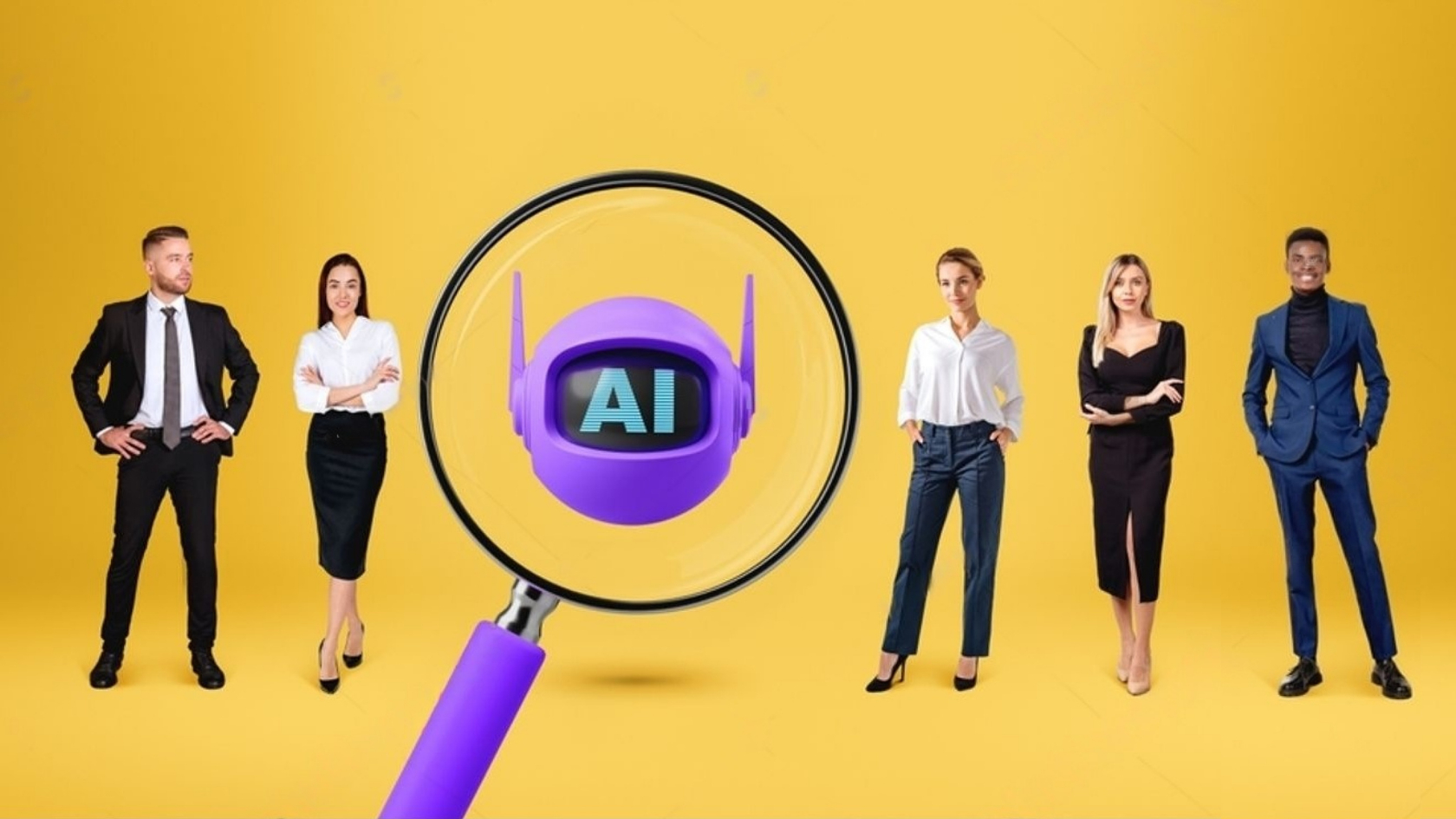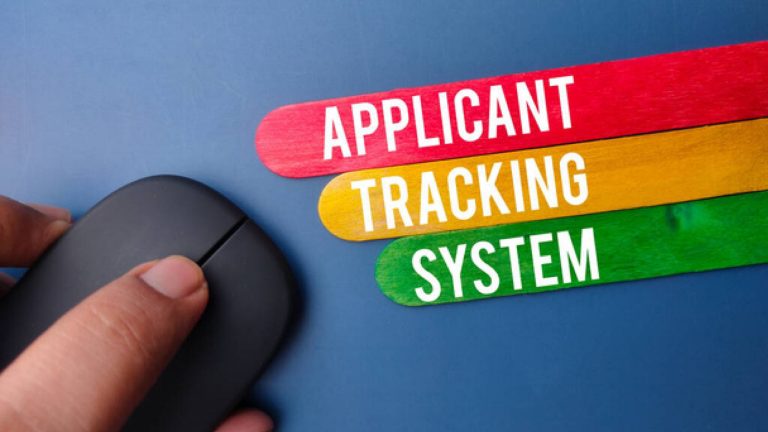The HR recruiting process is undergoing a profound change. At the forefront of this change is Artificial Intelligence (AI), a powerful ally that’s reshaping how companies attract, evaluate, and hire top talent, with recent studies showing that 79% of organizations already use some form of Artificial intelligence in their hiring practices. As an HR professional, you’re likely wondering how this technology can enhance your recruitment strategies and what it means for the future of your role. Let’s contemplate between AI and HR and explore how this partnership redefines modern recruitment.
Understanding the Role of AI in HR
Gone are the days of sifting through mountains of resumes manually. The HR recruiting process has evolved, and AI is at the heart of this evolution. AI is not here to replace human recruiters but to empower them. By automating time-consuming tasks, analyzing large amounts of candidate insights, and conducting interviews, AI tools free up HR professionals to focus on what they do best: building relationships and making strategic decisions. This evolution has opened new possibilities for identifying and attracting the best talent.
The Key Benefits of Using AI in HR Recruiting Process
Imagine cutting your hiring time in half while improving the quality of your hires. That’s the power of AI in recruitment. While AI can screen thousands of applications in minutes, a task that would take humans days or weeks is touted as the primary advantage of AI in recruitment; Its benefits extend far beyond time-saving. Artificial intelligence also improves the quality of hires by using data-driven methods to match candidates with job requirements more accurately.
Perhaps most importantly, unlike humans, Artificial intelligence doesn’t have unconscious biases. When properly set up, AI hiring tools can evaluate candidates based on their qualifications, communication, and cultural fit, promoting diversity and inclusion in the workplace.
Moreover, AI enhances the candidate experience with instant responses to candidate queries, scheduling interviews (basic), and keeping applicants updated throughout the application process, boosting the candidate experience using AI-powered chatbots.
AI analyzes vast data to predict candidate success, helping HR teams make more informed hiring decisions. By automating routine tasks, Artificial intelligence reduces the time and resources required for recruitment, allowing companies to allocate their budget productively. This improved experience can boost an organization’s employer brand. Lastly, Artificial intelligence enables HR professionals to make more informed decisions by providing deep insights into candidate pools.
AI Recruitment Tools and Platforms
The market is brimming with innovative hiring tools to supercharge various aspects of recruitment efforts. Advanced applicant tracking systems (ATS) offer resume parsing, candidate sourcing, applicant tracking, interview scheduling (basic), and automated communication to manage candidates. These systems offer customizable workflows and seamless integration with other HR tools, creating a cohesive recruitment ecosystem. Complementing these ATS are hiring tools to address various aspects of the recruitment process. Interview management platforms facilitate remote assessments, and customizable tests/video to evaluate candidates’ practical abilities.
Among these innovative solutions is InterviewHQ, a comprehensive AI interview management software. InterviewHQ revolutionizes the hiring process by automating interview question generation to roles, conducting asynchronous multi-channel interviews (text and video), and providing intelligent analysis of thousands of candidate responses simultaneously.
The software excels in large-scale hiring scenarios for recruiters to evaluate extensive numbers of applicants while reducing time-to-hire from weeks to hours. InterviewHQ’s Artificial intelligence engine focuses on competency alignment and candidate responses, mitigating unconscious bias in interview results and promoting diversity in hiring. It offers customizable assessment criteria, detailed candidate scorings, and interview performance metrics, enabling data-driven hiring decisions.
By addressing challenges such as time zone differences in global hiring, information overload in high-volume recruitment, and the need for objective candidate evaluation, InterviewHQ transforms the interview process into a streamlined, efficient, and fair experience. This platform is valuable for recruitment agencies managing large-scale hiring initiatives, fast-paced companies seeking talent for hourly roles, and tech firms looking for qualified programmers, offering a solution that works hand-in-hand with recruiters to achieve faster, unbiased, and more effective hiring on a global scale.
See Also How to Use AI to Hire Candidates: Best Practices and Tips: AI and HR: A Powerful Partnership in Modern HR Recruiting ProcessHow AI Enhances Candidate Sourcing and Screening
AI hiring tools can enhance the quality of candidate pools by tapping into a broader talent network to identify highly skilled candidates, while managing the interview process from scheduling to evaluation. These systems can analyze candidate profiles and resumes in-depth, beyond simple keyword matching, assessing detailed skill sets and cultural fit to provide a more holistic evaluation of each applicant.
One of the key benefits of Artificial intelligence in recruitment is its ability to minimize unconscious bias during the initial screening process. Traditional resume reviews are susceptible to human biases based on name, gender, ethnicity, or educational pedigree. AI, however, can analyze candidates’ responses based on their interview assessment, feedback collection, and scoring, providing deeper insights without these biases.
Employers often receive an overwhelming number of applications for open positions, making manual review resource-intensive and potentially leading to delays and overlooked qualified candidates. AI hiring tools can streamline this process, proving particularly valuable for popular roles or companies receiving high volumes of interest. These tools generate standardized interview questions for each role, ensuring consistency and relevance across all interviews, while providing immediate scoring and ranking of candidates based on their responses.
This efficiency can reduce the time spent on interviews, cutting weeks down to hours and making the hiring process much more manageable for organizations dealing with large numbers of applicants. AI systems can parse through hundreds or thousands of resumes, extracting relevant data points based on fit for the role. This allows recruiters to focus their time and attention on the most promising applicants, expediting the screening and interview stages.
Moreover, AI chatbots can engage with candidates throughout the application process, providing updates and answering common questions. This level of automation enhances the candidate experience, further strengthening an organization’s employer brand and attracting top talent.
Overcoming Challenges in Implementing AI in HR
When implementing Artificial intelligence in HR, organizations face concerns and misconceptions that need addressing head-on. Some of the most common issues include:
Concerns about job displacement:
HR professionals may fear that Artificial intelligence will automate their jobs. It’s essential to address this by emphasizing that AI augments and enhances recruiter capabilities, not replace them.
Distrust in AI decision-making:
There may be skepticism about AI’s ability to make fair and unbiased decisions in sensitive areas like hiring and performance reviews. Transparency around the algorithms and processes used is ideal for building trust.
Perceived loss of the “human touch”:
Some worry that AI will dehumanize HR processes and diminish the personal connection between the organization and its employees. Highlighting how AI can free HR professionals to focus on more strategic, high-touch activities can help cushion these concerns.
Lack of understanding about AI capabilities:
Many organizations struggle with grasping the potential and limitations of AI technology. Investing in education and training for HR teams is crucial to setting realistic expectations and unlocking AI’s value.
To ensure a smooth and effective implementation of AI in HR, organizations should adopt the following strategies:
Start with the right use cases:
Identify the HR processes that are the best fit for AI automation and enhancement, such as resume screening, interview scheduling, and interviewer management. This targeted approach helps build confidence and demonstrate the benefits of Artificial intelligence.
Ensure data quality and governance:
AI algorithms are only as good as the data they are trained on. Implement robust data management practices, including data cleansing, standardization, and governance, to ensure the integrity and reliability of the information used by Artificial intelligence systems.
Prioritize change management:
Successful AI implementation requires a well-planned change management strategy. This includes engaging employees, providing training and support, and addressing resistance to change through clear communication and focus on benefits.
Foster a culture of AI adoption:
Encourage HR teams to embrace a mindset of continuous learning and experimentation with AI. Celebrate early successes, share best practices, and create opportunities for collaboration and knowledge-sharing.
Establish ethical guidelines and compliance:
Develop a comprehensive framework that outlines the organization’s principles for the ethical use of Artificial intelligence, ensuring alignment with regulatory requirements and a commitment to fairness, transparency, and accountability.
While AI can automate and enhance numerous HR processes, it’s essential to maintain a balance between Artificial intelligence capabilities and human expertise. It ensures that the best of both worlds are leveraged for optimal outcomes.
Leverage AI for efficiency and scalability:
AI can handle high-volume, repetitive tasks, such as resume screening and interview scheduling. This frees HR professionals to focus on more strategic and interpersonal aspects of their roles.
Empower HR professionals with AI insights:
AI can provide HR teams with valuable data-driven insights, such as predictive analytics analytics for candidate assessment and interview analysis. However, these insights should be used to inform and enhance human decision-making, not replace it.
Maintain human oversight and intervention:
While AI can be effective, it’s crucial to retain human oversight and the ability to intervene in critical decisions, such as final hiring. This ensures that the “human touch” is not lost and AI recommendations are scrutinized and validated.
Foster a collaborative human-AI partnership:
Encourage HR teams to view AI as a synergic partner, not a replacement. By working together, humans and AI can leverage their strengths to create a more efficient, effective, and fair HR function.
The Future of AI in HR Recruiting Process
AI predictive models will become more sophisticated, allowing recruiters to forecast candidate success and retention rates with accuracy. Advanced Natural Language Processing (NLP) will enable more nuanced candidate screening, analyzing context and sentiment in resumes and cover letters.
Virtual Reality (VR) technology will be integrated into the recruitment process, offering immersive job simulations for more accurate skill evaluations. Blockchain technology will streamline the verification of candidates’ credentials, reducing fraud and speeding up the hiring process.
This technology will assist in analyzing candidates’ emotional responses during video interviews, providing deeper insights into their soft skills and cultural fit.
Preparing for the Evolving Job Market
HR professionals must commit to ongoing education to stay abreast of Artificial intelligence advancements and their applications in recruitment. Understanding the responsibility of AI in hiring will be crucial to ensure fair and unbiased recruitment practices.
As Artificial intelligence relies on data, HR teams will develop data analysis and interpretation skills. With Artificial intelligence handling more technical aspects, HR professionals should focus on developing interpersonal skills, creativity, and strategic thinking. HR will work more with IT and data science teams to implement and manage AI hiring tools.
The Ongoing Partnership between AI and HR Professionals
While AI will handle many routine tasks, recruiters will remain crucial for final decision-making and ensuring ethical practices. Rather than replacing human decision-making, AI informs and supports HR professionals.
As Artificial intelligence takes over repetitive tasks, HR professionals will dedicate more time to strategic initiatives and personalized candidate experiences. HR teams will work with AI developers to create solutions that meet organizational needs and cultural values. HR professionals will play a role in providing feedback to improve AI algorithms, ensuring they align with real-world recruitment challenges and organizational goals.
Wrapping up
Integrating AI into the HR recruiting process is the future of recruitment. By embracing this powerful partnership, you’re positioning yourself and your people at the forefront of modern hiring practices. The question isn’t whether you should incorporate AI into your recruitment strategy but how quickly you can start reaping its benefits.
Embrace the change, and watch your hiring outcomes soar to new heights by signing up for a 30-day FREE trial now.



